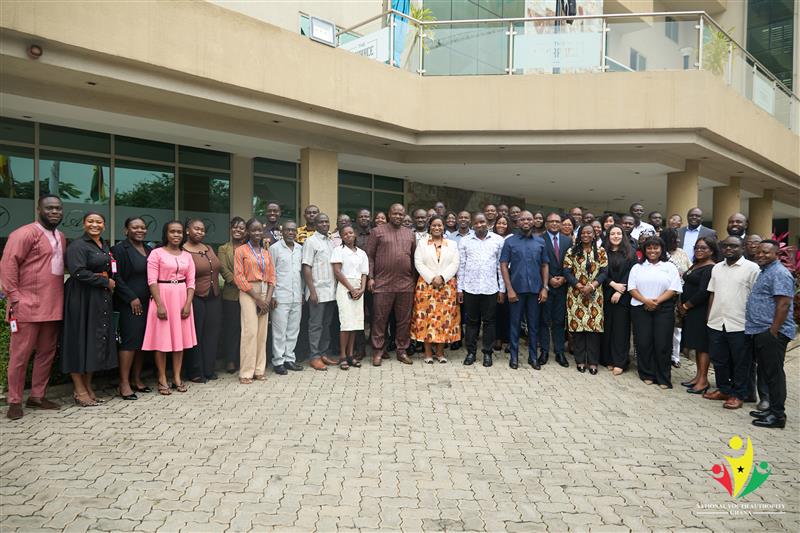“Africa is a gold mine of renewable energy”
October 23 Africa is struggling to provide its citizens with basic infrastructure, but as Fariya Abubakari, 26, a Commonwealth Correspondent from Bawku in Ghana writes, the continent has the potential to power itself and Europe with emissions-free energy.
Africa is struggling to provide its citizens with basic infrastructure, but as Fariya Abubakari, 26, a Commonwealth Correspondent from Bawku in Ghana writes, the continent has the potential to power itself and Europe with emissions-free energy.
The African continent could become a gold mine for renewable energy due to abundant solar and wind resources.
The continent is endowed with substantial renewable energy resources. It has 1.1 gigawatts of hydropower capacity, 9000 megawatt of geothermal potential and abundant biomass, solar and wind potential.
Africa’s energy sector is best understood as three distinct regions; North Africa which is heavily dependent on oil and gas, South Africa which depends on coal, and the rest of Sub-Saharan Africa which is largely reliant on biomass. Even oil rich Sub-Saharan African countries continue to rely on biomass energy to meet the bulk of their household energy requirements.
The sun emits more energy in one second (3.827* 1026J) than is available in all of the fossil fuels present on earth (3.9 *1022J) and therefore has the potential to provide all of our current and future global energy requirements. Since the solar rays are free, African nations can protect their people, environment and future economic development and the world at large.
Also, renewable energy facilities generally require less maintenance than traditional generators. Their fuel, being derived from natural and available resources, reduces the cost of operation as it will also reduce the African countries’ dependence on fuels and energy from foreign governments.
Renewables are the cleanest energy sources, offer stable price and are environmentally friendly due to zero carbon dioxide emission. With promising energy sources for future generations, increasing the supply of renewable energy would allow Africa to replace carbon-intensive energy sources and significantly reduce global warming emissions.
Wind and solar energy require essentially no water to operate and thus do not pollute water resources or strain supplies by competing with agriculture, drinking water systems or other important water needs.
Compared with fossil fuel technologies, which are typically mechanized and capital intensive, the renewable energy industry is more labour intensive. This means more jobs could be created for each unit of electricity generated from renewable sources.
Studies by the International Energy Agency indicate that the number of people without access to electricity has reached 600 million, and that availability of electricity in rural areas has increased just 22.7 per cent as of 2008. Data shows 99.6 per cent of those without electricity are in sub-Saharan countries, reflecting the continued disparities in energy production and transportation infrastructure in the continent.
Interest in renewable energy in Africa is prodded by recurrent crises faced by most power utilities. For example, in 2000 alone, Ethiopia, Kenya, Malawi, Nigeria and Tanzania faced unprecedented power rationing, which adversely affected their economies. Ghana is now in that position. African countries are pre-occupied with meeting long standing demands for a minimum level of modern energy services, while the poor continue to rely on inefficient and environmentally hazardous unprocessed biomass fuel.
The Desertec Foundation has suggested that up to 20 per cent of power demand in Europe can be obtained by connecting African deserts to European cities by building a large number of concentrated solar power plants in middle Eastern and Northern African countries. The power would be transmitted to Europe by means of very high-voltage direct current cables. The Foundation claims that if only 0.3 per cent of the expanse of the Sahara were covered with solar panels, it would power the entire European continent. If up to one per cent of the desert were covered, it could power the entire world.
A researcher from the European commission’s Institute for Energy earlier this year supported those figures, while British Prime Minister Gordon Brown and French President Nicholas Sarkozy have supported plans to build a 45 billion Euro ($64 billion) “super grid” that would connect renewable energy resources across Europe and Africa.
The renewable energy resource potential in Africa has not been fully exploited, mainly due to the limited policy interest and investment levels. In addition, technical and financial barriers have contributed to low levels of uptake of renewable energy technologies.
Now is time for Africa to make good use of its renewable energy resources, not only for its own benefit but also to save the whole world from the impact of climate change. This calls for the rich countries to help Africa with funds to make good use of its substantial renewable resources.
photo credit: Balancing Sunlight via photopin (license)
…………………………………………………………………………………………………………………
About me: I am from Bawku in the Upper East Region of Ghana, where I am the Country Coordinator of End Ecocide Ghana, a soil scientist and a climate tracker activist who writes about Ghana’s role in international climate negotiations. I am a graduate student of Kwame Nkrumah University of Science and Technology and love researching, reading, writing and cooking.
…………………………………………………………………………………………………………………
Opinions expressed in this article are those of the author and do not necessarily represent the views of the Commonwealth Youth Programme. Articles are published in a spirit of dialogue, respect and understanding. If you disagree, why not submit a response.
To learn more about becoming a Commonwealth Correspondent please visit: http://www.yourcommonwealth.org/submit-articles/commonwealthcorrespondents/
…………………………………………………………………………………………………………………




